Is QuickBooks an ERP System? A Comprehensive Comparison
QuickBooks is not an ERP system because it only offers accounting capabilities. However, it does have features that make it more than just a basic accounting software. Many small and medium-sized businesses face the challenge of deciding whether to stick with QuickBooks, or migrate to an Enterprise Resource Planning (ERP) system.
- QuickBooks Online is an accounting software designed for small and medium-sized businesses, whereas ERP systems are extensive business management solutions.
- QuickBooks Desktop provides advanced features to manage growing operations. It has several limitations compared to ERP systems.
- Businesses should consider migrating from QuickBooks when they require a solution to handle complex business operations across multiple locations and currencies.
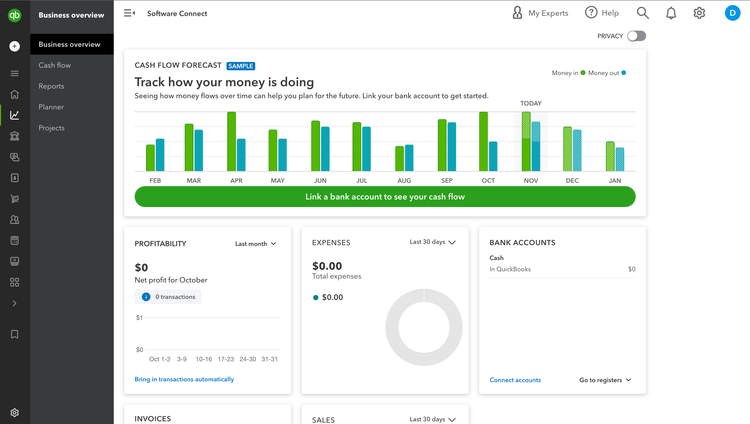
Understanding QuickBooks and ERP Systems
QuickBooks is a widely-used accounting software solution created for SMBs to manage their finances effectively. While it provides essential accounting features, such as invoicing, payroll, and financial reporting, it primarily focuses on small businesses with less complex requirements.
On the other hand, ERP systems are modular software solutions that manage and automate critical business processes across an organization. These systems provide a comprehensive range of features, such as inventory management, customer relationship management, and human resources management, making them suitable for larger organizations with more complex processes.
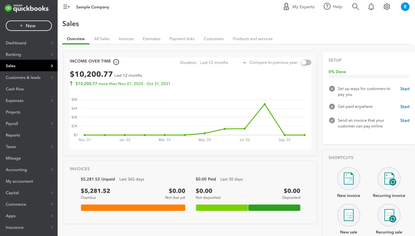
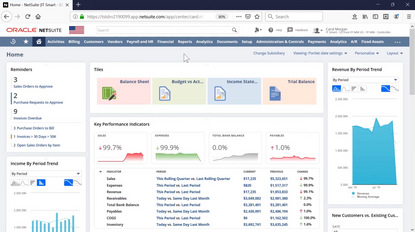
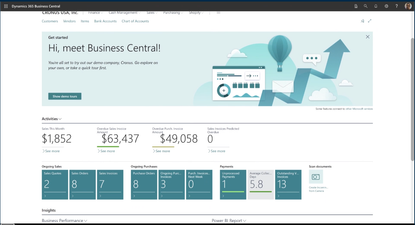
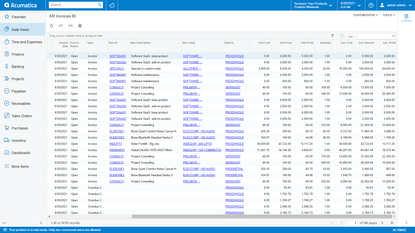
What is QuickBooks?
QuickBooks Online is a popular accounting software, offering a financial tool to simplify and streamline various tasks. It enables users to:
- Track time
- Create and send invoices
- Track bills and expenses
- Pay bills online
- Customize expense tracking
- Generate reports for analysis, among other essential accounting functions.
With its user-friendly interface and relatively short learning curve, QuickBooks Online has become the go-to solution for many businesses needing a reliable and efficient accounting system.
However, it’s important to note that QuickBooks is primarily designed for businesses with less complex financial management needs. As your business grows and demands more advanced features, you may find that QuickBooks is no longer sufficient to handle your expanding requirements.
Additionally, QuickBooks has faced criticism for its frequent price hikes. Some customers find QuickBooks Online pricey, with base costs ranging from $35 to $235 a month. What’s more, they find they often need a background in accounting to understand the software. Finally, Intuit has shifted QuickBooks Desktop away from a perpetual license to a subscription-based model.
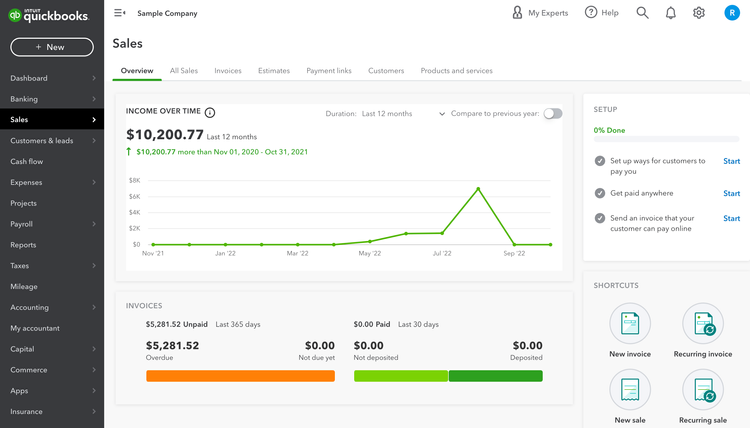
What is an ERP System?
ERP software consolidates key functions like accounting, sales, production, inventory, and customer relations. By offering a unified platform, these systems efficiently manage various business processes across your organization.
ERP systems cater to larger organizations with complex needs, providing sophisticated, customizable financial management, inventory control, human resources, and customer relationship management. They offer a more comprehensive solution than simple accounting software like QuickBooks, helping businesses streamline operations and automate tasks.
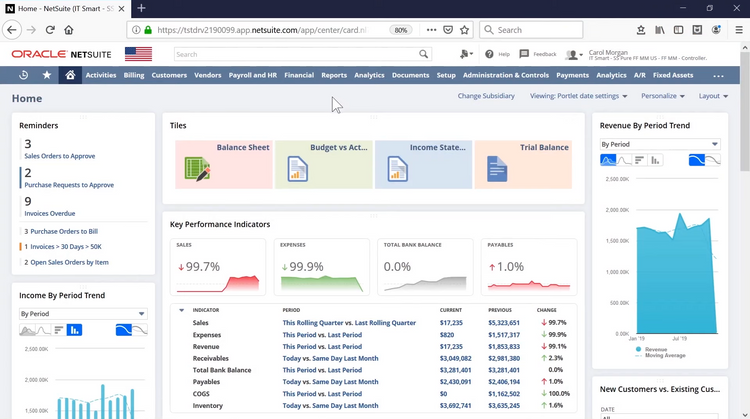
QuickBooks vs ERP Systems
In this section, we will compare the features of QuickBooks and ERP systems in three major areas: accounting functions, inventory management, and business process automation.
Accounting Functions
QuickBooks provides users with essential accounting features such as tracking income and expenses, managing payroll, invoicing customers, generating financial reports, and maintaining a chart of accounts. These features are designed to help small and medium-sized businesses manage their day-to-day financial tasks efficiently.
In contrast, ERP systems provide deeper, more customizable financial management capabilities, allowing businesses to handle more complex financial operations and gain deeper insights into their performance. For example, ERP systems can provide customized, role-based dashboards, enhanced control features, and adherence to GAAP regulations in the US and IFRS abroad.
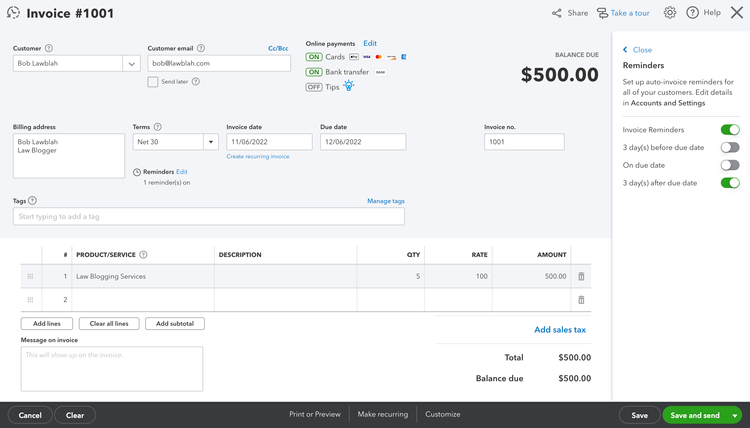
Inventory Management
Regarding inventory management, QuickBooks offers limited capabilities, such as basic tracking of inventory levels and sales. This functionality is available in QuickBooks Online’s Pro and Advanced plans, priced at $99 and $235 per month, respectively.
However, QuickBooks lacks the advanced features and flexibility provided by ERP systems. For example, ERP systems can prevent transactions that would cause negative inventory, requiring error correction before continuing. QuickBooks allows one to post a sale of items not included in the inventory.
ERP systems provide more extensive and adaptable inventory management solutions, such as multi-location inventory tracking, barcode scanning, and inventory assembly capabilities. These advanced features enable businesses to manage their inventory more effectively and reduce errors. By implementing ERP solutions, companies can enhance customer satisfaction and increase profitability.
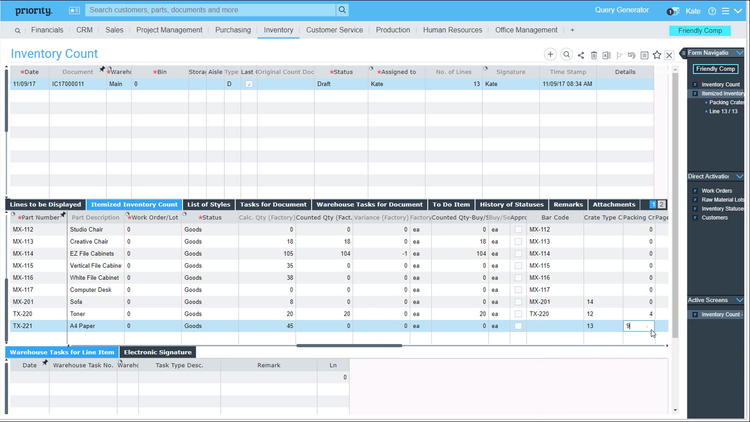
Business Process Automation
QuickBooks offers basic automation features designed for small businesses with limited users and less complex requirements. These features include automating payroll, streamlining the accounts payable department, integrating banking processes, and configuring workflows for accounting tasks. The software can also handle invoice reminders, simplified payments, and automated digital processes for timesheets, expense claims, and billing.
ERP systems, on the other hand, provide more comprehensive automation features for larger companies or businesses with more sophisticated needs. These features include automated data entry, workflow processes, reporting, and analytics, as well as automated financial, inventory, and customer relationship management. By automating various business processes, ERP systems can help organizations save time, reduce costs, and minimize the risk of human error.
QuickBooks Desktop
While QuickBooks is a solid choice for smaller businesses, some organizations may require additional features to manage their growing operations. In such cases, QuickBooks Desktop Enterprise, a more advanced version of QuickBooks, can bridge the gap by offering enhanced inventory management, pricing, and time-tracking features.
However, even with these additional functionalities, QuickBooks Desktop still has limitations compared to ERP systems.
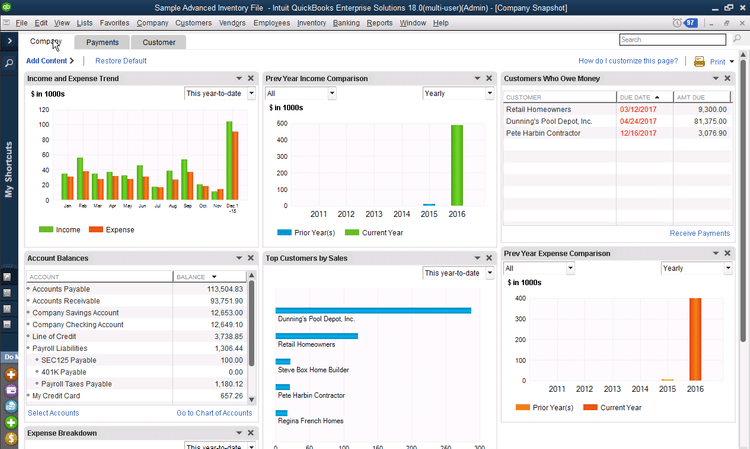
Key Features of QuickBooks Desktop
QuickBooks Desktop Enterprise extends the capabilities of the standard QuickBooks software by offering advanced inventory management, pricing, and time-tracking features. These enhancements include multi-location inventory tracking, barcode scanning, and assembly capabilities, as well as price levels, discounts, and special pricing rules.
In addition, QuickBooks Desktop provides features such as job costing, time tracking, and payroll integration, further expanding its capabilities. This makes QuickBooks Desktop a more powerful option for businesses requiring advanced features without needing a full ERP system.
Limitations
Despite its advanced features, QuickBooks Desktop Enterprise lacks essential ERP functionalities such as true MRP functionality, with tools like capacity planning and shop floor control.
Additionally, QuickBooks Desktop experiences system slowdowns with large volumes of data or transactions. Large file sizes can also cause performance issues. It also has far fewer integrations than QuickBooks Online, which could be an issue for enterprises relying on specialized tools.
When to Migrate from QuickBooks to ERP
Understanding when to transition from QuickBooks to an ERP system can help businesses ensure they have the right tools to support their growth and manage increasingly complex operations.
Businesses may consider migrating to an ERP system when managing their entire business across multiple locations and currencies.
Growth and Scalability
ERP systems are better suited for businesses with rapid growth and expansion plans, as they offer deeper functionality, agility, and scalability to support increasing demands. In contrast, QuickBooks is designed specifically for small businesses with limited growth potential and may struggle to handle the needs of a rapidly-expanding company.
QuickBooks may be a more suitable option for businesses with low-growth policies due to its user-friendly interface and lower technical expertise requirements than ERP systems. However, as your business grows and requires more advanced features, you may need to consider migrating to an ERP system to ensure your organization can scale effectively and efficiently.
Complex Business Operations
ERP systems are designed to handle complex processes and provide a thorough overview of operations. These systems offer a wide range of features, such as automation of manual processes, integration and real-time data sharing, and robust financial management and data analytics.
In contrast, QuickBooks is better suited for simpler companies with less complex needs, providing basic accounting functions, inventory management, and reporting. However, organizations with more complex operations may find that QuickBooks cannot meet their growing demands.
Integration with QuickBooks
Integrating QuickBooks with other ERP systems can potentially provide the best of both worlds, offering additional functionalities to enhance your existing accounting software.
However, there are also challenges and considerations to consider when deciding whether to pursue this integration.
Benefits of Integration
Integrating ERP systems with QuickBooks can offer several advantages, such as providing enhanced features like warehouse, human resources, and supply chain management. By combining the capabilities of both solutions, businesses can benefit from a more powerful toolset to manage their operations.
Integrating ERP systems with QuickBooks can also help streamline operations, reduce labor costs, eliminate errors, and provide a unified view of information from multiple systems in real-time. This can enable organizations to plan, integrate, and automate workflows more effectively.
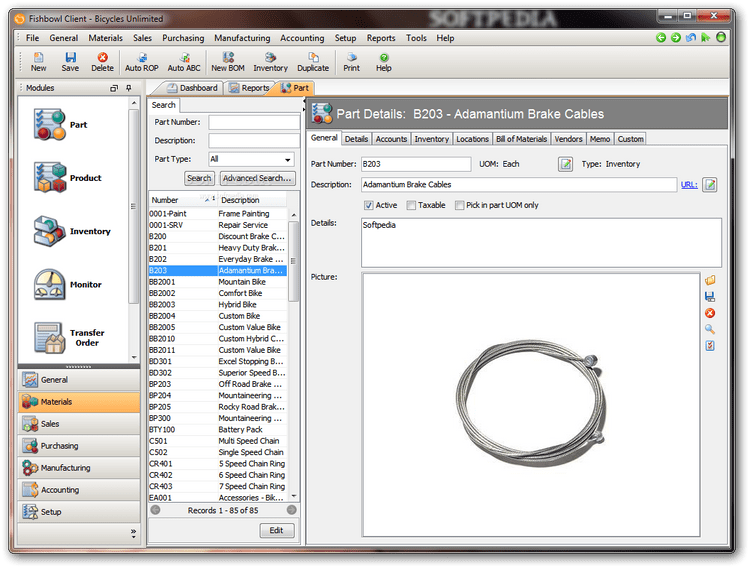
Challenges and Considerations
While integrating ERP systems with QuickBooks can offer numerous benefits, there are also challenges and considerations to be aware of. For example, integration can be a complex and expensive process, requiring careful planning, implementation, and ongoing maintenance. Additionally, potential compatibility issues between the two systems must be addressed to ensure a seamless integration.
It’s essential to weigh the benefits and challenges of ERP integration with QuickBooks carefully before deciding. By thoroughly evaluating the costs, intricacies, and maintenance requirements, companies can make an informed choice about whether integrating ERP with QuickBooks is the answer.
Final Thoughts
While QuickBooks is an excellent solution for small businesses with less complex needs, ERP systems offer deeper, customizable functionalities to support larger organizations with more intricate processes.
Ultimately, the decision to stick with QuickBooks, migrate to an ERP system, or explore the possibility of integration will depend on your specific business needs, growth potential, and operational complexity.
Frequently Asked Questions
What are ERP systems?
Is QuickBooks Desktop an enterprise accounting system?
What is the primary difference between QuickBooks and ERP systems?
Can QuickBooks handle complex inventory management tasks?
What are the benefits of integrating ERP systems with QuickBooks?
Integrating ERP systems with QuickBooks provides numerous benefits, such as improved warehouse management, human resources management, and supply chain management.
This can help streamline your operations and enable greater efficiency in your business.















